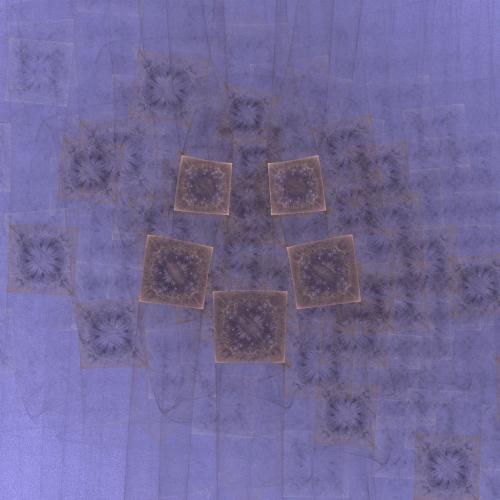BY LETTER
Sentience, Sapience, Sophonce
 Image from John B |
Sapience
Technically, sapience is the ability to think and solve problems; intelligence in the strict sense. In common usage the word "sapient" is used as a synonym for sophont, since problem-solving ability in certain key areas qualifies a being as sophont. Expert systems of sufficient complexity are sapient, and may have abilities that are otherwise only seen in turingrade or even hyperturing sophonts. However, they may lack the qualities or abilities that are known as sentience or sophonce. Early measures of sapience such as the IQ tests of the 1st century BT, and later more sophisticated measures devised in the Interplanetary Age are the primitive ancestors to the measures of sapience used by modern by toposophologists. These include some of the better known toposophic scales as well as subtler and less well known tests for kinds and degrees of problem-solving ability.Sapient
As an adjective, having the characteristics of sapience. As a noun, particularly in the plural, often used as a synonym for "sophont(s)".Sentience
Sentience is awareness, including the ability to experience pleasure or pain (or analogous drives and experiences) and make predictions about the future. A sentient being is sapient to at least some degree, and sentience is in turn a prerequisite for sophonce. Terragen animals are sentient, as are analogous non-terragen bionts, neogens, and various m-life and a-life entities. On the other hand plants and single-celled organisms (and their nonbiological or xenobiont equivalents) are considered non-sentient or minimally sentient. Modern toposophology has long had a variety of technical definitions for the kinds and degrees of sentience, together with associated tests. Some of these date as far back as the primitive investigations of the 1st century BT or before; these in turn owe something to philosophical speculations from the dawn of the Agricultural Age.Sentient
As an adjective, having the characteristics of sentience. As a noun, particularly in the plural, any being that is deemed to have sentience, as in "The Universal Bill of Sentient Rights".Sophonce
Sophonce is sentience and sapience with metacognition: self-awareness, including self-reflection and the ability to think about one's thinking. Kinds and degrees of sophonce are well defined and testable in modern toposophology, but a full understanding of them eludes even superbright modosophonts. The definitions used by transapients of S1 and higher do not translate clearly into any subsingularity format, but they claim to have a full definition of the major types of sophonce. A sophont being is a "person" under most legal and social systems in the Civilized Galaxy. Transapient informants have said that sophonce is a prerequisite for a number of other qualities and abilities that are unique to beings of S1 or higher. The term "sophont" was first coined by the 1st century BT fabulists Karen and Poul Anderson, to describe hypothetical non-terragen bionts with human-equivalent abilities and qualities. It came into general usage in languages ancestral to Anglic with the advent of the first provolves and turingrade ais.Sophont
A person. A being that has the quality of sophonce. Such beings are sometimes called "sapients". For historical reasons, sophont-grade ais, may be called "turingrade ais", even though because of philosophical and practical difficulties with the Turing Test the term "sophont ai" would be clearer.Related Articles
- Autosentience, Autoscience
- Hypersentience - Text by M. Alan Kazlev
[noun]: Sentience developed to an extraordinary degree. Does not necessarily have to imply autosentience (e.g. some animin alifes are hypersentient but not autosentient). - Hypersentient - Text by M. Alan Kazlev
[adj.] Possessing hypersentience. [noun]: an entity, whether postbiont, postalife, or hyperturing, that possesses an SI:1 or higher degree of sentience. It is usually but not necessarily autosentient or hypersapient. - Hypersophonce - Text by M. Alan Kazlev
[noun]: The toposophic state defined not only by hypersapience but by autosentience as well. - Hypersophont - Text by M. Alan Kazlev
[adj.] Possessing hypersophonce. [noun]: a being possessing a toposophic of SI:1 and higher sophonce. - Intelligence
- Intelligent Agent
- Person - Text by Anders Sandberg
A person is an entity given rights. A legal person is an entity recognized by the law, usually identical with the person. See also Copy Rights. - Presophont - Text by M. Alan Kazlev
Another term for presapient. At the threshold of rational intelligence. Non-provolved apes are presophont. - Realization Number
- Sentience Algorithms - Text by John B and Pran Mukherjee
The flow of steps which, when followed, allow an organized system to develop and maintain a degree of sentience. The underpinning of ai design. Required massive (at the time) neural nets or even more massive emulations thereof on hardware, state vector machines, and other information age new technology, being massively parallel (capable of running many many tasks simultaneously, or at least appearing to be able to do so to an outside observer.) - Sophonce
- Sophont - Text by Stephen Inniss
A person. A being that has the quality of sophonce. Such beings are sometimes called 'sapients'. For historical reasons, sophont-grade ais, may be called 'turingrade ais', even though because of philosophical and practical difficulties with the Turing Test the term 'sophont ai' would be clearer. - Sophtware
- Subsapient - Text by M. Alan Kazlev
A being that may be sentient but has not developed rational faculties; e.g. an animal or bot. - Subsentient - Text by M. Alan Kazlev
A simple organism, alife, or bot that is not fully sentient. - Subsophont - Text by M. Alan Kazlev
A being - whether biological or aioidal, that may be sentient but has not developed true sophonce. - Synergistic Sentience, Synergistic Autosentience
Appears in Topics
Development Notes
Text by Stephen Inniss
Initially published on 22 April 2008.
Initially published on 22 April 2008.






